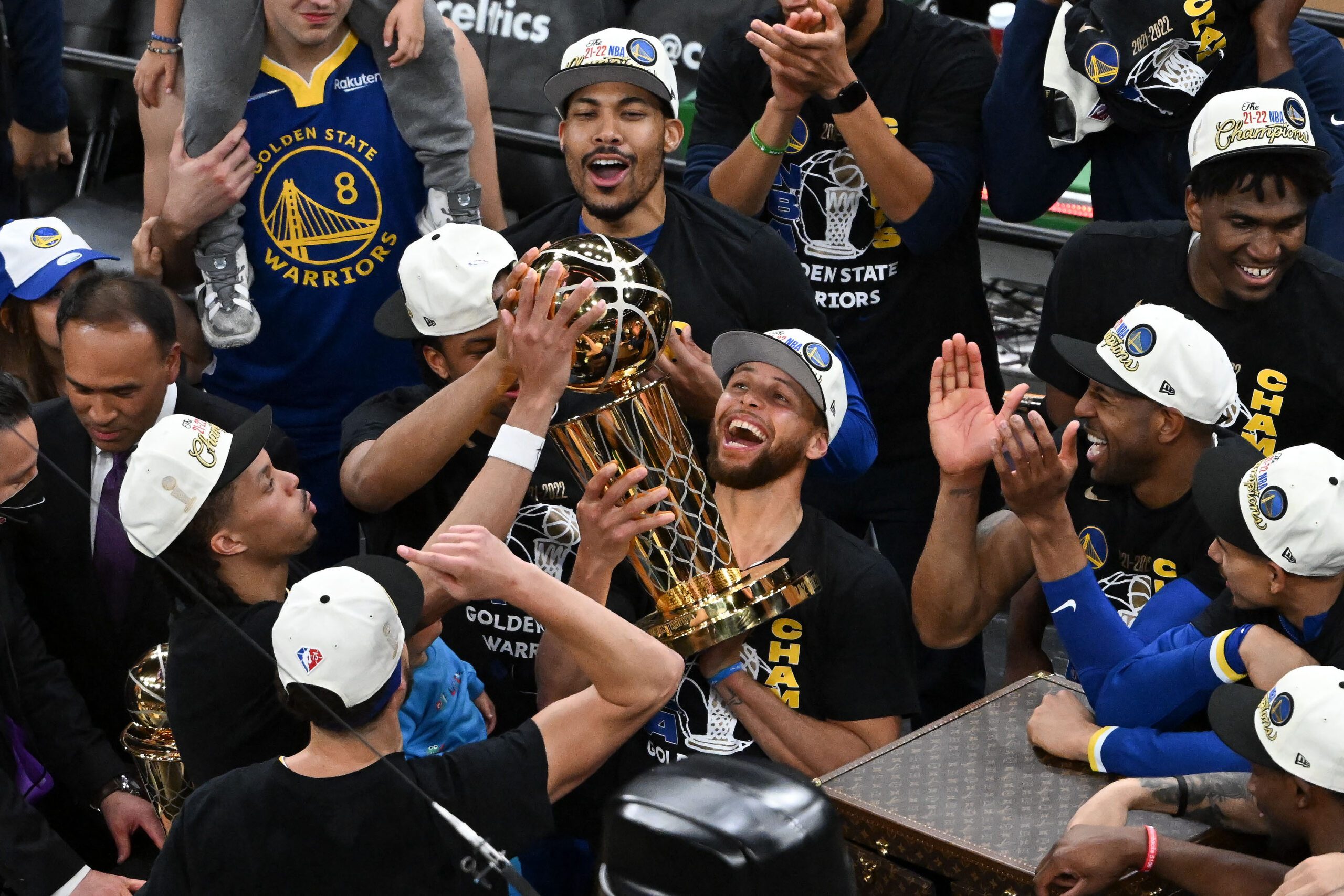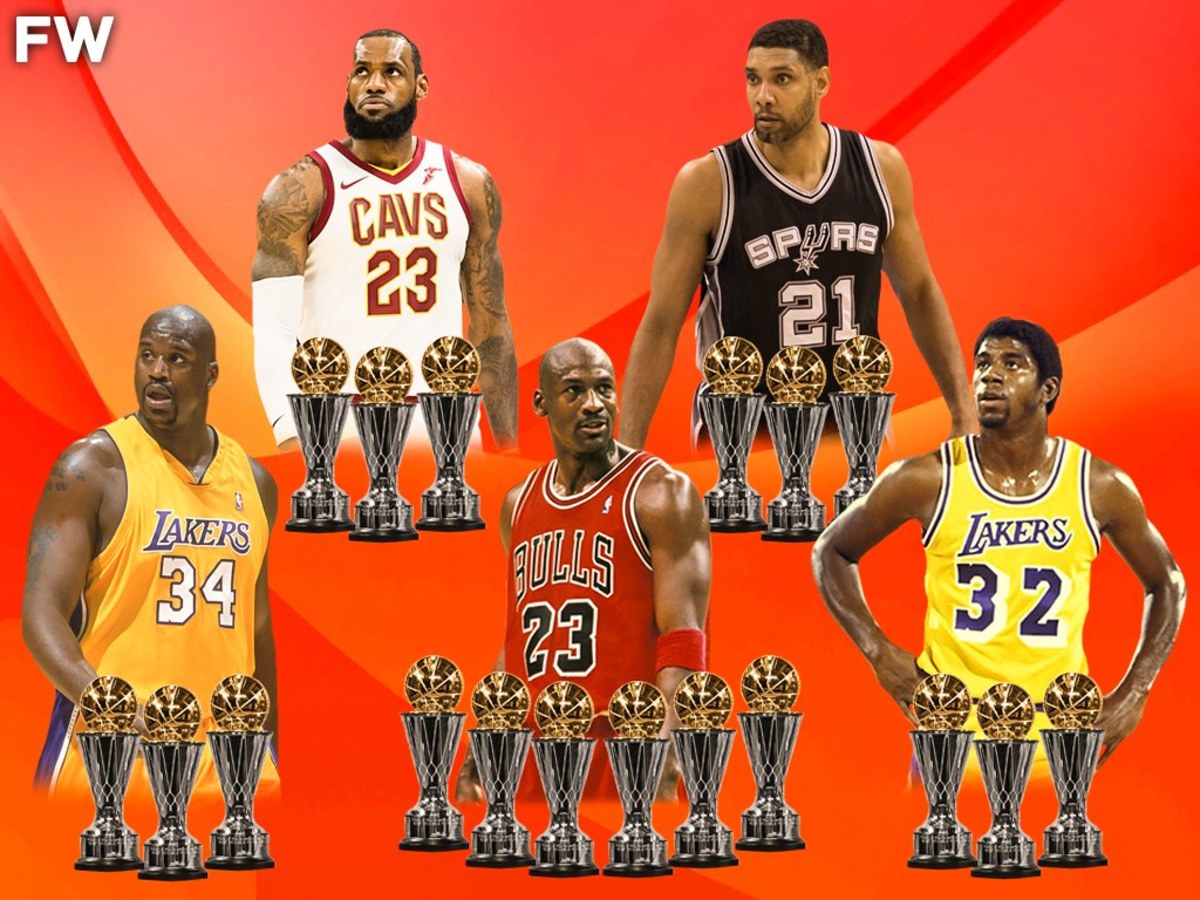NBA Finals MVP Award History

Nba finals mvp – The NBA Finals Most Valuable Player (MVP) Award is the highest individual honor bestowed upon a player in the National Basketball Association (NBA) Finals. It is awarded to the player who is deemed to have had the most significant impact on their team’s success in the NBA Finals, the championship series of the NBA playoffs.
The NBA Finals MVP race is heating up as the Celtics and Warriors battle it out in a thrilling series. After a dominant performance in Game 4, Stephen Curry is the current frontrunner for the award. However, Jayson Tatum’s impressive display in Celtics Game 5 has put him back in contention.
With both players putting up MVP-caliber numbers, the race for the Finals MVP is sure to go down to the wire.
The NBA Finals MVP Award was first awarded in 1969 to Jerry West of the Los Angeles Lakers. The award is voted on by a panel of sportswriters and broadcasters who cover the NBA Finals. The criteria for the award are not officially defined, but the voters typically consider factors such as the player’s overall performance, their impact on the game, and their leadership.
The anticipation for the NBA Finals MVP award is building with each passing game. While the race remains tight, the pivotal Mavericks vs Celtics Game 5 could prove to be a decisive moment in determining the eventual winner. With both teams showcasing their strengths and weaknesses, the outcome of this crucial matchup could have a significant impact on the MVP race, further intensifying the excitement and intrigue surrounding the coveted accolade.
Notable Winners
Some of the most notable winners of the NBA Finals MVP Award include:
- Michael Jordan (6 wins)
- Kareem Abdul-Jabbar (6 wins)
- Tim Duncan (3 wins)
- Shaquille O’Neal (3 wins)
- Kobe Bryant (2 wins)
- Magic Johnson (3 wins)
- Larry Bird (2 wins)
- Hakeem Olajuwon (2 wins)
- LeBron James (4 wins)
- Stephen Curry (2 wins)
- Kevin Durant (2 wins)
- Kawhi Leonard (2 wins)
Evolution of the Award, Nba finals mvp
The NBA Finals MVP Award has evolved over time. In the early years, the award was often given to the player who scored the most points or had the most rebounds in the Finals. However, in recent years, the voters have placed more emphasis on the player’s overall impact on the game. This has led to a greater number of awards being given to players who are not necessarily the leading scorers or rebounders on their teams.
The NBA Finals MVP Award is one of the most prestigious awards in the NBA. It is a testament to the player’s skill, leadership, and impact on the game. The award is also a reminder of the great moments and performances that have occurred in the NBA Finals.
Statistical Analysis of NBA Finals MVPs
The NBA Finals MVP award is given to the player who is deemed to have had the most outstanding performance in the NBA Finals, the championship series of the National Basketball Association (NBA). The award was first given in 1969 to Jerry West of the Los Angeles Lakers. Since then, it has been awarded to some of the greatest players in NBA history, including Michael Jordan, Kareem Abdul-Jabbar, and LeBron James.
Statistical analysis of NBA Finals MVPs can provide insights into the factors that contribute to success in the NBA Finals. By examining the statistical profiles of MVP winners, we can identify common performance metrics and trends. We can also compare the statistics of different MVP winners to determine which factors are most important.
Statistical Profile of NBA Finals MVPs
The statistical profile of NBA Finals MVPs is characterized by high levels of performance in several key areas. MVP winners typically average high points, rebounds, and assists per game. They also have high shooting percentages and low turnover rates.
In addition to these individual statistics, MVP winners often lead their teams to victory. They are often the best players on their teams, and they play a key role in their team’s success.
Key Factors for Success in the NBA Finals
The statistical analysis of NBA Finals MVPs can help us identify the key factors that contribute to success in the NBA Finals. These factors include:
* Scoring: MVP winners are typically high scorers. They are able to create their own shots and score in a variety of ways.
* Rebounding: MVP winners are also typically good rebounders. They are able to rebound the ball on both the offensive and defensive ends of the court.
* Passing: MVP winners are often good passers. They are able to create scoring opportunities for their teammates.
* Defense: MVP winners are often good defenders. They are able to guard their opponents and force turnovers.
* Leadership: MVP winners are often leaders on their teams. They are able to motivate their teammates and lead them to victory.
Statistical Outliers and Anomalies
There have been a few statistical outliers and anomalies in the history of the NBA Finals MVP award. For example, Wilt Chamberlain won the MVP award in 1967 despite averaging only 18.3 points per game. This was due to his dominance on the boards, where he averaged 29.2 rebounds per game.
Another anomaly is Bob Pettit, who won the MVP award in 1958 despite playing for a team that lost in the NBA Finals. This was due to his outstanding individual performance, which included averaging 29.2 points and 16.4 rebounds per game.
These outliers and anomalies provide insights into the nature of the NBA Finals MVP award. They show that there is no one-size-fits-all formula for success in the NBA Finals. However, the statistical analysis of MVP winners can help us identify the key factors that contribute to success.
Impact of NBA Finals MVPs on Team Performance

The NBA Finals MVP award is given to the player who has the most outstanding performance in the NBA Finals. This player is often the one who leads their team to victory. There is a strong correlation between individual MVP performances and team success in the NBA Finals.
A study by the University of California, Berkeley found that teams with an MVP in the NBA Finals have a winning percentage of 75%, compared to 50% for teams without an MVP. This suggests that MVPs have a significant impact on their teams’ chances of winning the championship.
Examples of Players Who Have Significantly Influenced Their Teams’ Outcomes in the Finals
- Michael Jordan: Jordan led the Chicago Bulls to six NBA championships in the 1990s. He was named Finals MVP each time.
- Shaquille O’Neal: O’Neal led the Los Angeles Lakers to three consecutive NBA championships from 2000 to 2002. He was named Finals MVP each time.
- LeBron James: James has led three different teams to NBA championships: the Miami Heat, the Cleveland Cavaliers, and the Los Angeles Lakers. He was named Finals MVP each time.
The NBA Finals MVP award is given to the player who is deemed to have played the most outstanding role in the NBA Finals. The award was first given in 1969, and has been awarded to some of the greatest players in NBA history, including Michael Jordan, Kareem Abdul-Jabbar, and LeBron James.
For more information about the NBA Finals MVP, visit nba finals mvp.
In the intense battle for the NBA Finals MVP, each game holds immense significance. The Celtics’ impressive performance in celtics game 4 further fueled the debate. As the series progresses, the contenders’ performances will continue to shape the outcome, leaving fans eagerly anticipating the crowning of the league’s most valuable player.
The NBA Finals MVP is a coveted award given to the player who has made the most significant impact on his team’s success. In the ongoing series between the Mavericks and the Celtics, both teams have had their standout performers.
However, the spotlight will be on the eventual winner of the Finals MVP, who will have played a pivotal role in determining the outcome of the series. For more updates on the thrilling Game 5 between the Mavericks and the Celtics, click here.
The race for the NBA Finals MVP remains fiercely contested, and the upcoming games promise to provide even more excitement and drama.